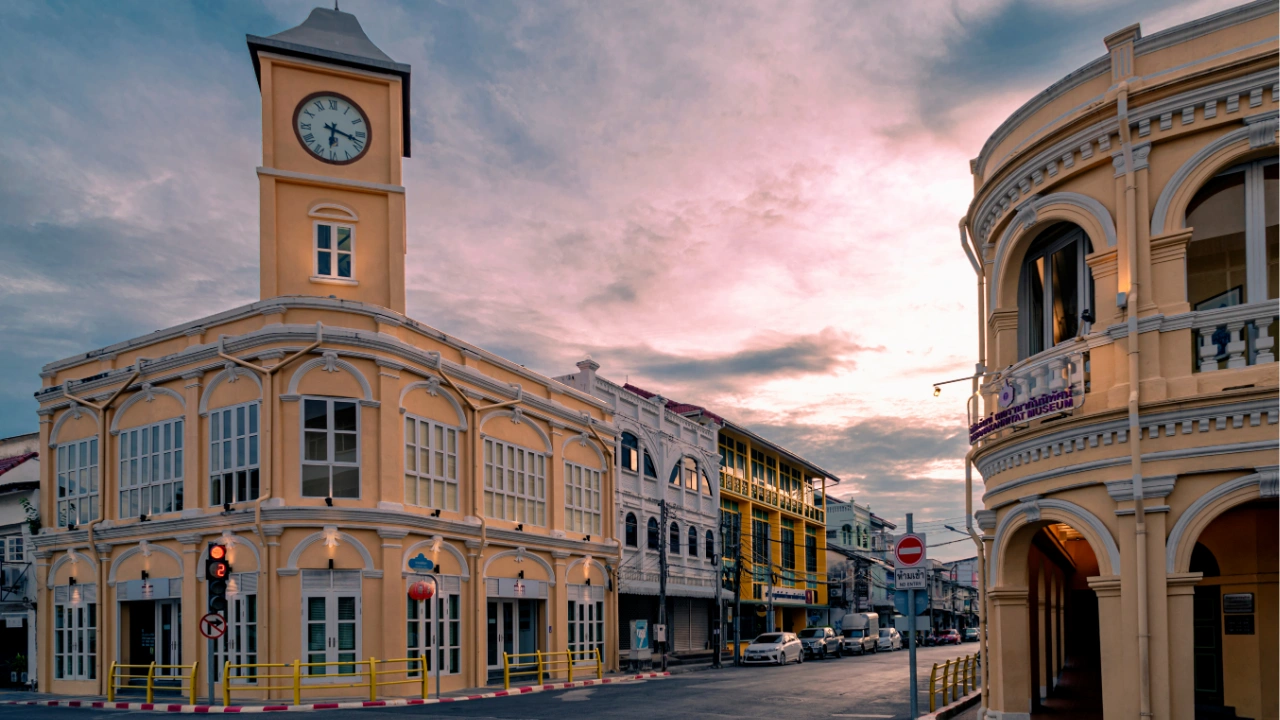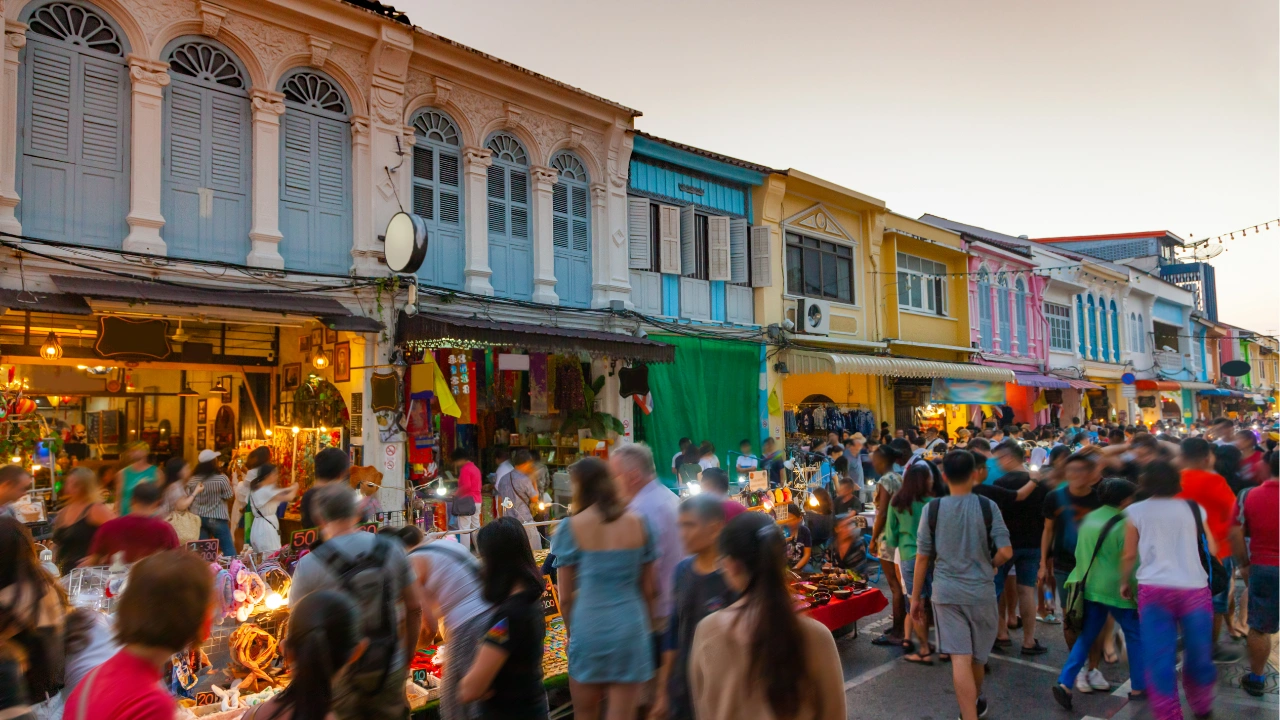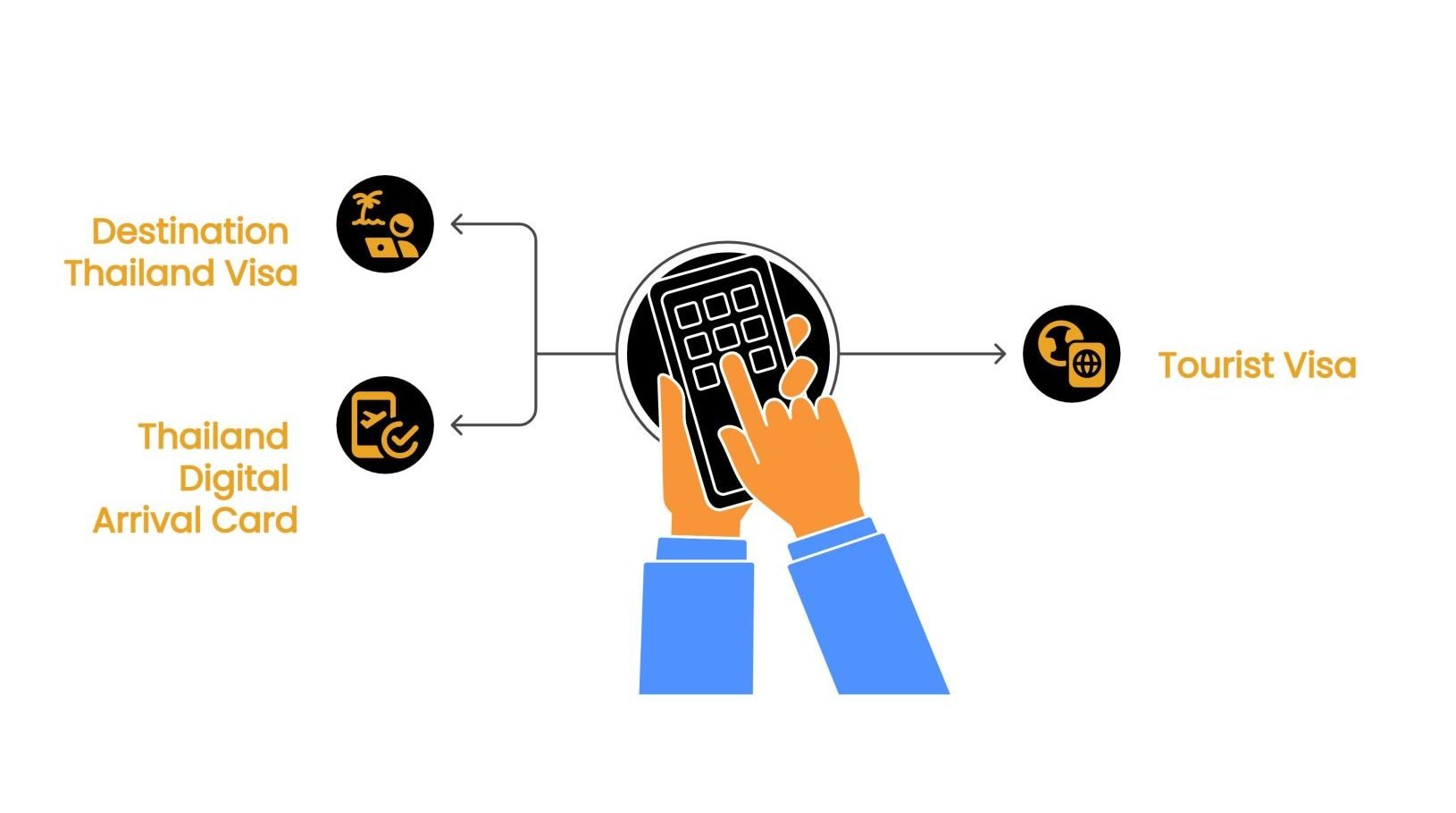Digital nomading in Phuket, is it still worth it in 2025?
What’s great, what’s changed, and what to keep in mind when living in the southern paradise

Phuket has been a popular spot for digital nomads for many years, due to its sunny beaches, friendly international crowd, and modern coworking spaces. This year, it still draws remote workers with its low cost of living, good internet, and relaxed island lifestyle.
You can work during the day and enjoy the beach or nightlife in the evening. But with more choices around Asia, is Phuket still a desirable place to live and work this year? Let’s look at what life is like for digital nomads in Phuket in 2025, what’s great, what’s changed, and what to keep in mind.
Is it still worth it to be a digital nomad in Phuket in 2025
| Jump to Section | summary |
|---|---|
| Cost of living | Phuket offers affordable accommodation, food, and transportation options, making it a great choice for digital nomads in 2025. |
| Workspaces and the internet | Phuket has a growing coworking scene with fast internet and flexible membership options, ideal for remote workers. |
| Community and networking | The digital nomad community in Phuket is vibrant, with plenty of meetups, events, and online groups for connection. |
| Lifestyle and location | Phuket combines work with leisure, offering a tropical lifestyle with beaches, activities, and modern infrastructure. |
| Visa and entry | Phuket offers various visa options for digital nomads, including the new Destination Thailand Visa (DTV) for long-term stays. |
| Pros and cons | Phuket provides an affordable and vibrant place for digital nomads, but it can get crowded during peak tourist seasons. |
Cost of living

The cost of living in Phuket in 2025 is still good for digital nomads, with plenty of choices for different budgets and ways of living.
Accommodation is the biggest cost, but you can find many options:
- A one-bedroom apartment usually costs between 15,000 and 35,000 Thai baht per month. The price depends on where it is and what’s included.
- Co-living spaces start from around 8,000 Thai baht per month. These are great if you want a shared space with other remote workers. Rooms are usually furnished and include things like internet and cleaning.
Food is cheap and easy to find:
- Local meals from street stalls or markets can cost as little as 50 Thai baht or even less.
- If you eat at Western or international restaurants, expect to pay more, but it’s still cheaper than in many Western countries.
Transport is simple and affordable:
- Most people rent scooters to get around. It costs about 3,000 to 4,000 Thai baht per month.
Utilities and internet are also quite affordable:
- Electricity, water, and internet usually cost between 2,000 and 5,000 Thai baht each month.
- Fast fibre internet is common and often included in rent or coworking space fees.
Many digital nomads also choose to have travel medical insurance from providers like SafetyWing, which offers flexible, affordable plans made for remote workers abroad. This adds peace of mind for those living long-term in Thailand without access to local healthcare plans.
Phuket offers a great mix of comfort and value. Whether you’re on a tight budget or want a more comfortable setup, you’ll find something that works. You can enjoy a fun island lifestyle while keeping your expenses under control.
Workspaces and the internet

Phuket has a lively coworking scene in 2025, perfect for digital nomads who want a place to work and meet others. With more than 50 coworking spaces around the island, you’ll find something that suits your style and budget.
Prices are flexible:
- Daily passes start from 100 Thai baht (about US$3).
- Monthly memberships begin around 2,800 Thai baht (about US$80).
- You can also rent a dedicated desk or private office if you need more space and quiet.
Many of the spaces also host events, workshops, and networking meetups, helping digital nomads connect, learn new skills, and build friendships.
The internet is fast and reliable:
- Most coworking spaces offer fibre-optic internet with speeds between 20 and 50 Mbps.
- Many also provide backup WiFi, so your work doesn’t get interrupted.
Phuket’s coworking options in 2025 give you everything you need: affordable prices, fast internet, good workspaces, and a strong community, all set in a beautiful island location.
Community and networking

Phuket’s digital nomad community in 2025 is lively, friendly, and full of opportunities to meet people and grow, both at work and in daily life.
It’s easy to connect with others:
- Coworking spaces like Garage Society, HOMA, and HATCH host regular events and meetups.
- These range from skill-sharing workshops and business talks to casual hangouts at cafés, rooftop bars, or beaches.
- Many coworking spaces have community managers who help newcomers feel welcome and introduce them to others.
Online communities also play a big role:
- Facebook groups like Digital Nomads Phuket are great places to ask questions, find events, and meet people with similar interests.
- You can join meetups for your industry, language exchanges, or just social nights to make friends.
Events and activities often include:
- Talks about remote work, business tips, or how to be more productive.
- Workshops on Thai culture and local rules.
- Wellness classes like yoga and meditation.
- Group trips and beach outings to explore the island together.
Phuket is more than just a place to work. It offers a strong, welcoming community where digital nomads can build friendships, share ideas, and enjoy a great lifestyle in 2025.
Lifestyle and location

Phuket offers a great balance between work and leisure, making it one of the most attractive places for digital nomads in 2025. You get the convenience of modern infrastructure along with the charm of island life.
During the day, working is easy with high-speed fibre internet, strong 5G coverage, and many coworking spaces across the island. Whether you’re based in town or near the beach, it’s easy to stay connected and productive.
Once work is done, Phuket has plenty to offer. You can relax on the beach, take part in outdoor sports, or enjoy the rich local culture. The island also makes it simple to stay healthy and active:
- Gyms, yoga studios, and wellness retreats are available in many areas.
- Popular activities include hiking, diving, paddleboarding, and beach volleyball.
- Dining ranges from street food stalls to high-end international restaurants.
For nightlife and entertainment, head to Patong for bars, live music, and night markets. If you’re more into art, food, and a relaxed pace, Phuket Old Town is the place to be with its colourful buildings, local galleries, and traditional markets.
Different parts of Phuket suit different lifestyles:
- Patong is best for social nomads who enjoy nightlife and energy.
- Rawai, Kata, Chalong, and Kamala offer quieter, community-focused areas ideal for long stays.
- Phuket Old Town is perfect for creatives and those who love culture and history.
Visa and entry

Phuket makes it easy for digital nomads and remote workers to live and work on the island in 2025. Thailand has introduced new visa options and updated its entry process to make things faster and simpler.
For long stays, the Destination Thailand Visa (DTV) is a great option:
- This visa is made for digital nomads and remote workers.
- It allows you to stay up to 180 days per entry, and you can extend it once a year for a total of 360 days.
- It’s a multiple-entry visa valid for five years.
To apply for the DTV, you must:
- Be at least 20 years old
- Show proof of freelance or remote work with clients outside Thailand
- Have at least 500,000 Thai baht (around US$14,500) in your bank account over the past few months
- Apply online through the Thai e-Visa website or at a Thai consulate
For shorter stays, you can use the tourist visa:
- Apply fully online through the Thai e-Visa system
- Approval usually takes a few days to a couple of weeks
- You’ll need a passport with enough validity, proof of funds, a return ticket, and your accommodation details
New rule since May 1:
All foreigners entering Thailand must complete the Thailand Digital Arrival Card (TDAC) online before arrival. This replaces the old paper form (TM6) and helps speed up border checks.
- Submit the TDAC within 3 days before arriving
- You can update your travel details online until your departure
While visas are now easier to manage, it’s still important to have travel health insurance. Providers like SafetyWing offer coverage that fits the needs of digital nomads and long-stay visitors, helping you stay protected throughout your time in Thailand.

Pros and cons
| Pros | Cons |
|---|---|
| Affordable cost of living | Higher prices during peak tourist season |
| Reliable internet and coworking spaces | Less budget-friendly compared to Chiang Mai |
| Strong, friendly expat and digital nomad community | Some areas can get crowded with tourists |
| Tropical lifestyle with plenty of outdoor and leisure activities |
Phuket remains a top choice for digital nomads in 2025, offering affordable living, reliable coworking spaces, and a vibrant international community. With flexible long-stay visa options, fast internet, and plenty of things to do after work, the island continues to support a productive and balanced lifestyle. Travel insurance from SafetyWing adds another layer of security, making it easier for remote workers to settle in and stay protected. For more insights on how digital nomads manage expenses across the country, read our guide on the cost of living in Thailand as a digital nomad.
Sponsored
Latest Thailand News
Follow The Thaiger on Google News:
























